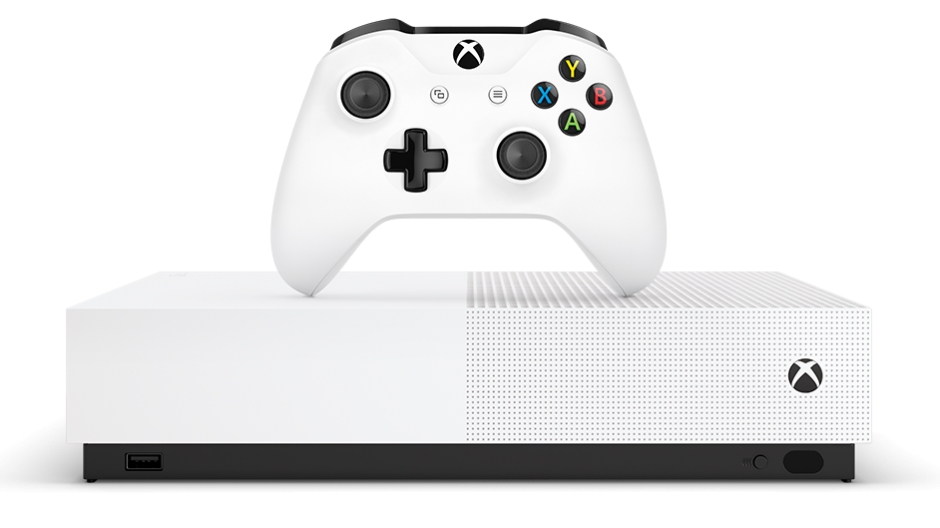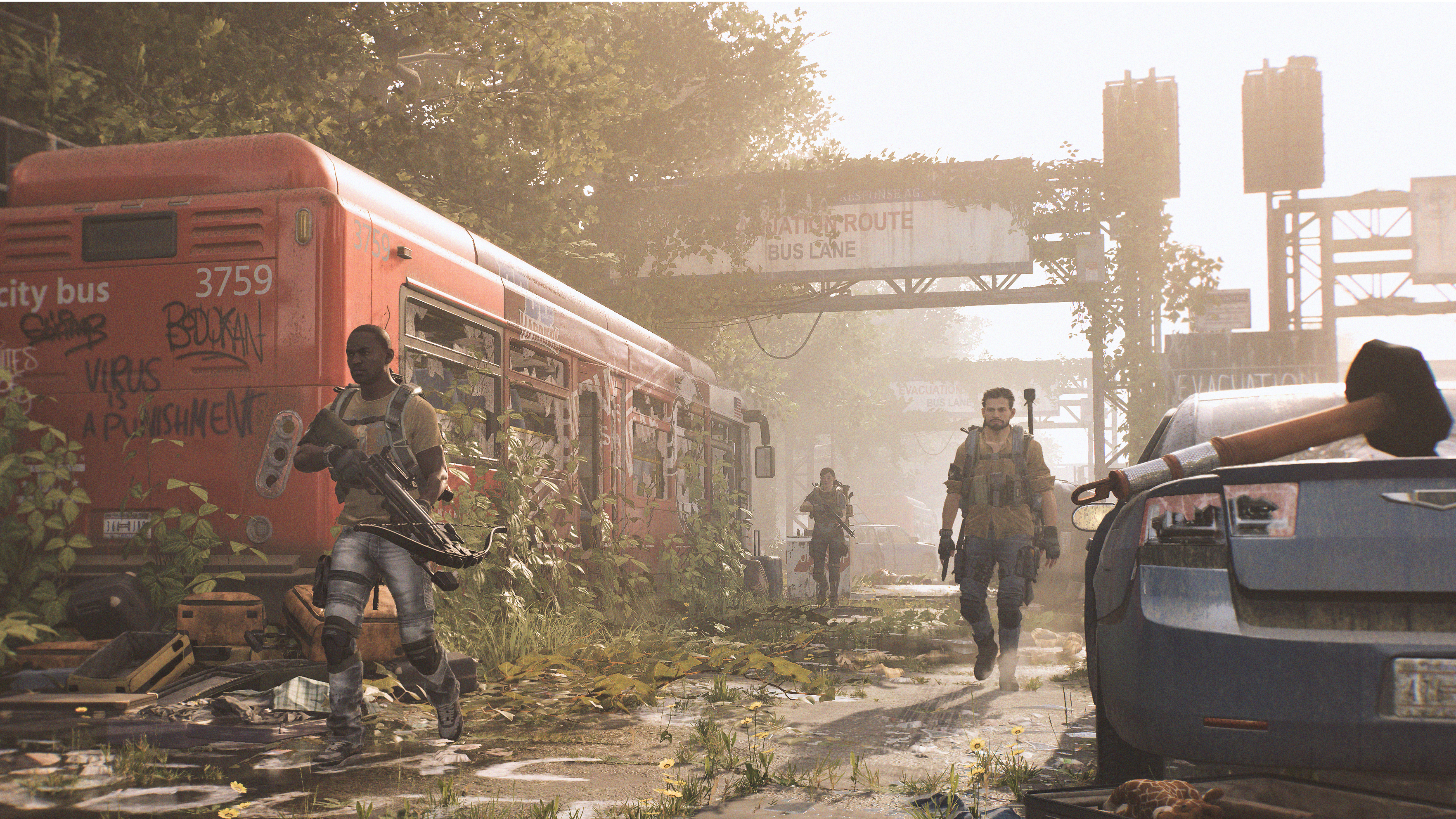How the all-digital Xbox One paves the way for gaming beyond PS5 and Xbox Two
How much life is left in the gaming disc?

There’s a new Xbox on the way – and it’ll be here before E3 2019. No, we’re not talking about the Xbox Two, or whatever Microsoft’s next-gen machine is going to be called. Instead, we’re on about the Xbox One S All-Digital Edition.
Yep, you read that correctly – all-digital. As in, no discs. No physical media. All download.
Scary, isn’t it?
No. Of course it isn’t – we’ve been staring down the barrel of the gun named “discless future gaming” for years now, and Microsoft has made the jump at a time when gamers are finally ready to accept it. That doesn’t mean gamers are happy about it, but the defence of physical media is one that’s been chipped away at for years, to the point where for gamers beyond those who are also collectors, it’s all but irrelevant.
Aside from the love of owning a physical item, the modern evolution of games distribution, for better and worse, has rendered physical media practically obsolete. We used to enjoy being able to pop a new game into a console and booting it up almost as soon as it was out of its cellophane wrapping. But now there will be an inevitable 3 hour, 20GB patch to download, a “day one” fix for all the bugs the developers failed to iron out before that shipping deadline was met.
The same goes for bringing a game to a friend’s house – unless you’re ready to sit through a lengthy download screen the first time you bring it over, you’d be better off just sticking to their own libraries.
Beware the trade-in
The disc’s one value remains in the second hand market, where you can trade or sell games to support your next purchase. But even then, with the rise of games-as-a-service, you’re likely to have lost out on one-time content codes that are packed in with new games, or will have to invest in the ongoing content drops of DLC that keep long-life games like Destiny 2 alive.
Get daily insight, inspiration and deals in your inbox
Sign up for breaking news, reviews, opinion, top tech deals, and more.

And remember, if you truly want to support the developers of the games you play, the second hand market is deathly to them – they receive no cut from the sales of a second hand game.
Digital distribution brings with it benefits too, of course. A pre-order can be pre-loaded onto the console ahead of release so that, unlike with physical media, you actually can play a game the moment it is released.
You’re able to jump from one downloaded game to another without getting up to change a disc. And, for smaller developers, the digital distribution route is a more cost-effective way to get their wares onto your console, without the costs that physical media necessitates. Though digital discount events are common, it does however sadly remain that digital downloads cost the same as their physical counterparts – if not more.
if you truly want to support the developers of the games you play, the second hand market is deathly to them
All taken into account, though you may want to defend physical gaming media’s existence, it’s really only now a defence born from nostalgia for a way of playing games that no longer exists.
The numbers increasingly back up gamers’ move from a physical to digital preferences. The Division 2 has been one of the year’s big gaming success stories. It was number one in the UK charts in the week commencing March 11 – but only managed to shift 20% of the physical copies that the first title managed. Does that mean that the UK playerbase has gone elsewhere? Of course not – they’ve just migrated to digital instead.
The key is Game Pass
There has long been talk of a discless Xbox console, with rumors stretching back as far as the launch of the Xbox One itself. But where neither Microsoft’s audience nor its services were ready for the transition back in late 2013, both are now well placed to accept, if not embrace the change.
Microsoft’s fantastic Xbox Games Pass service is key to this equation. For a reasonable monthly fee, gamers get access to over 100 Xbox One titles (it’s closer to 200 at the time of writing), ready to download to their consoles. And that also comes with the promise that any first party Microsoft games will be available through Game Pass the same day they hit store shelves.
Together with a cheaper hardware option in the shape of Xbox One S All-Digital Edition, it lowers the barrier of entry for lapsed or new-comer gamers, with a ready-made game library ready to be enjoyed.

The new Xbox Game Pass Ultimate makes for the complete digital-only package – rolling the benefits of both Xbox Game Pass and Xbox Live Gold (which unlocks online play and gifts a handful of digital download games to subscribers for keeps every month) into one monthly fee, that’s more affordable by a rate of 25% than paying for both individually.
It’s recurrent income for Microsoft, more so than banking on gamers to make a game purchase every month. And that’s especially so when you take into account the “sleeper” subscriber – the person who signs up for a service, and lets payments to it tick away in the background whether they’re engaging with the offering or not.
Does this mean the Xbox Two will do away with a disc drive too? That’s unlikely, particularly in the light of the recent PS5 specs reveal. Sony’s console will still have a disc drive, and not merely to support its backwards compatibility program.
Blu-ray discs are still a useful way of transferring data, minimising the initial download a game needs upon opening. A disc can also be used to stream additional assets from too – it’s the reason Red Dead Redemption 2 comes with an install disc and a playing disc.
But the death of the disc is all but assured, and the final nail in its coffin will be streaming. Sony, Microsoft, and even Google with its Stadia service, are investing in a future where even downloads will be a thing of the past, let alone the box under your TV within which to house them.
All you’ll need is an input device, a screen, and the willingness to let go of your grip on the physical world.
Gerald is Editor-in-Chief of iMore.com. Previously he was the Executive Editor for TechRadar, taking care of the site's home cinema, gaming, smart home, entertainment and audio output. He loves gaming, but don't expect him to play with you unless your console is hooked up to a 4K HDR screen and a 7.1 surround system. Before TechRadar, Gerald was Editor of Gizmodo UK. He is also the author of 'Get Technology: Upgrade Your Future', published by Aurum Press.
